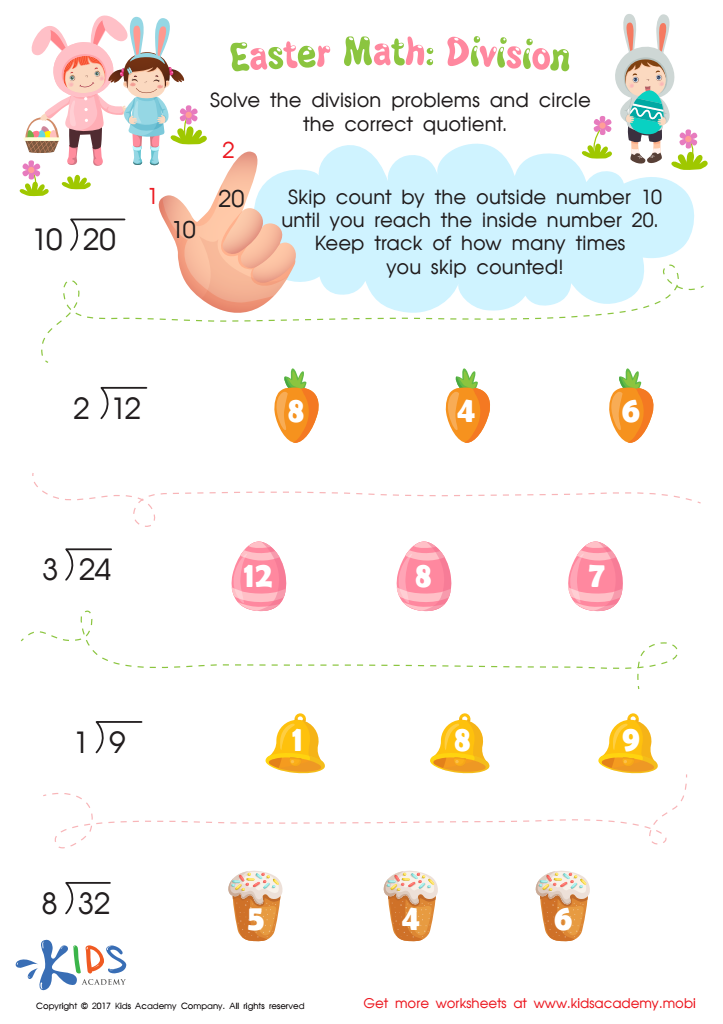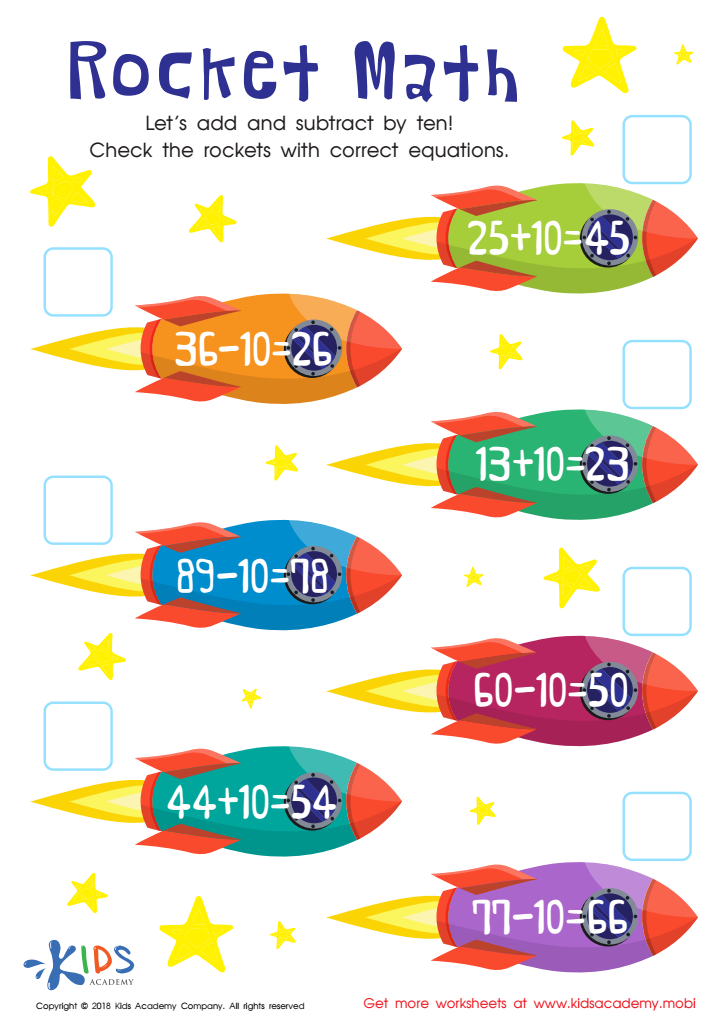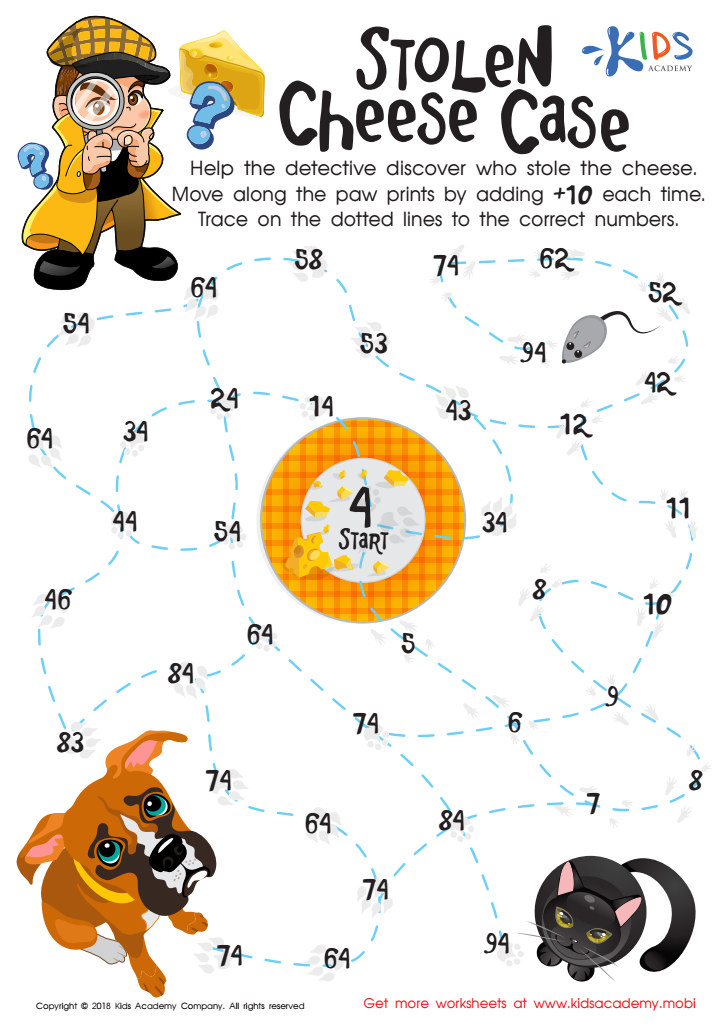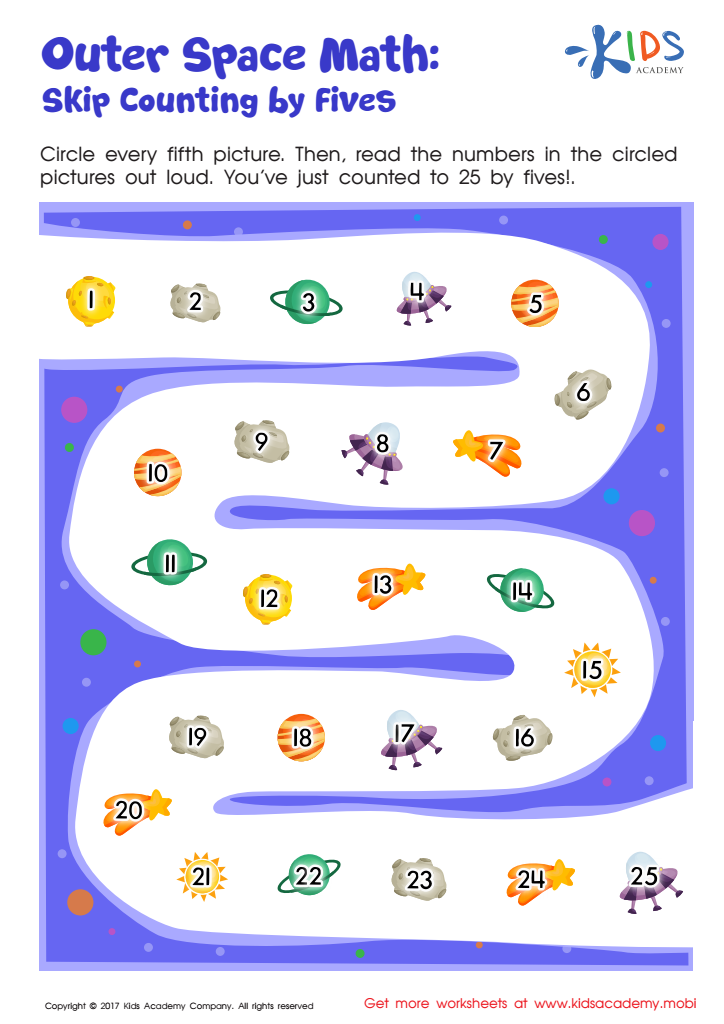Problem-Solving Skills Skip Counting Worksheets for Ages 4-8
4 filtered results
-
From - To
Boost your child's math confidence with our Problem-Solving Skills Skip Counting Worksheets, specifically designed for ages 4-8! These engaging worksheets help young learners master skip counting by 2s, 5s, and 10s while enhancing their critical thinking and problem-solving abilities. Each activity encourages children to connect numbers, recognize patterns, and develop essential math skills in a fun, interactive way. Perfect for homeschooling or supplementary practice, our worksheets make learning enjoyable and effective. Watch your kids flourish as they tackle various challenges and build a strong foundational understanding of mathematics. Start your journey to mathematical mastery today!


Division Worksheet


Rocket Math Worksheet


Stolen Cheese Case Maze Worksheet


Skip Counting by 5s: Outer Space Math Printable
Problem-solving skills and skip counting are fundamental components of early mathematics education for children aged 4 to 8. These skills foster critical thinking, enhance numerical understanding, and lay the groundwork for more complex math concepts later on.
Parents and teachers should care about skip counting because it introduces children to patterns in numbers, an essential aspect of mathematical reasoning. By learning to skip count, children can easily navigate addition and multiplication tasks, making the transition to higher-level math smoother. For example, skip counting by twos helps in understanding even numbers, leading to greater fluency in arithmetic calculations.
Moreover, strong problem-solving skills empower children to approach challenges with confidence and creativity. Encouraging early problem-solving fosters resilience, as children learn to persist through difficulties and think outside the box. These skills not only apply to mathematics but extend to everyday life situations, encouraging analytical thinking.
In addition, cultivating skip counting and problem-solving abilities creates a fun and interactive learning experience. Engaging activities like counting games can strengthen parent-child bonds while providing robust educational benefits. Ultimately, prioritizing these skills helps children develop a solid mathematical foundation, promoting lifelong learning and success in various fields.
 Assign to My Students
Assign to My Students






%20(1).jpg)













